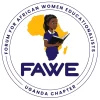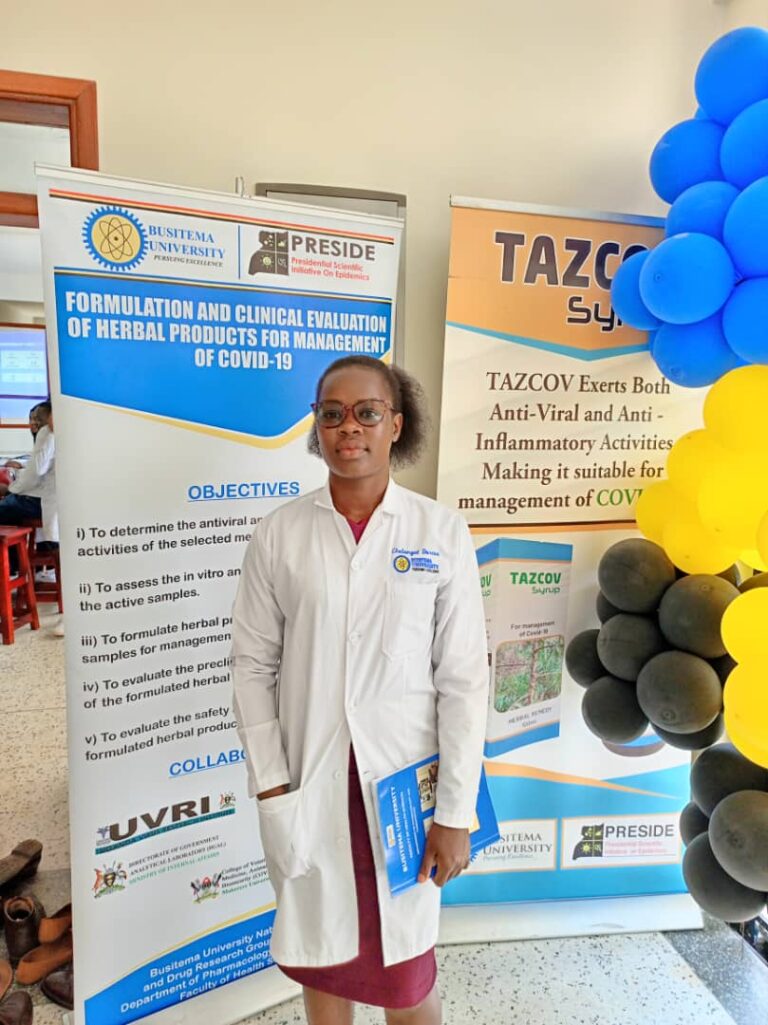“I thank FAWE Uganda for breaking the barriers to girls’ futures through education,” a proud FAWE Uganda beneficiary on the Mastercard Foundation scholarship, Dorcus Chelangat cheerfully speaks out.
Born and raised in Bukwo district, Dorcus Chelangat shares her vivid and detailed memories of her childhood navigating psychological abuse, kinship care and finding a future despite the broken pieces of the past.
In the community where Dorcus lives the income of the majority of the population, including her parents, comes from agriculture. The dry season presented great difficulty as their livelihood entirely depended on agriculture.
From agriculture, Dorcus’ parents afforded the basic needs for the family of nine children. However, in 2004, she recounts their life being messy and worrisome as there were rampant pokot cattle raids, merciless killings of neighbors and relatives, increased early marriages and forced Female Genital Mutilation (FGM) among other uncouth practices.
They sought refuge in Western Kenya till the government managed the situation back home. They then returned to a paralyzed education system, households burnt down to ashes and their oxen all raided.
Inspite of all the misfortune, Dorcus’ unwavering interest in education never ceased and she is thankful for her parents who forged a way to take her to a U.P.E and thereafter seed school that the government had restored.
At A’ level, her family finances dwindled and irregularities in school attendance started due to delayed payment of school fees. This affected Dorcus’ grades and she did not attain sufficient points to pursue her dream course, Anesthesia. Even worse, her parents could not afford to pay her tuition after S.6. Dorcus spent her S.6 vacation crying and lamenting as she saw her academic career and goals coming to an end.
One evening, Dorcus’ father heard the District Education Officer (D.E.O), Bukwo District at the time, speak of FAWE Uganda sponsorships for the less privileged, especially girls. He picked interest and rushed to the DEO’s house for more information.
Dorcus applied for the scholarship, was called for interviews and passed. She enrolled on the Higher Education Access Certificate (HEAC), a one year bridging program that gives a second chance to students who did not get enough points to get into higher education. After excelling in the HEAC, Dorcus was shortlisted for the Extended Orientation Program at Busitema University and that was her game changer.
“This was the greatest feeling in my life. From that day, I walk with my head high. All my fears of not affording the tuition are history.” a cheerful Dorcus speaks out.
Dorcus is currently pursuing her dream course, a Bachelor’s of Science in Anesthesia and Critical Care Medicine, entirely sponsored by FAWE Uganda.
“I can’t thank God enough for FAWE Uganda because it’s quite impossible to put a figure to the hopes and dreams that have come to life through the sacrifice of everyone in the organization who is working tirelessly behind the scenes to ensure that young people receive an education. Through FAWE Uganda’s mentorship programs, all of us beneficiaries are trained in financial literacy. Thank you FAWE Uganda, may God bless you.” Dorcus says.
“I would like to extend my sincere thanks to Mastercard Foundation for the financial aid rendered to support girl child education.” She adds.
She says FAWE Uganda not only pays her tuition but also goes an extra mile to give her money for upkeep. It is part of this money that she is using to pay her siblings’ school fees and to finance her parents’ agricultural needs to boost their farmland.
Dorcus believes that the communities where the FAWE Uganda beneficiaries hail from will be positively impacted as a result of the education the young people receive. She hopes to work in her district after her studies and also establish an irrigation scheme to ensure all year round production in the farm and insurance against harsh and drastically changing weather conditions.
“I want to change the narrative in my community that a female is not just meant to be exchanged for cows but rather an icon and source of hope and light to the seemingly backward communities.”


